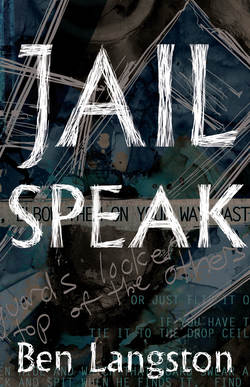Читать книгу Jail Speak - Ben Langston - Страница 9
На сайте Литреса книга снята с продажи.
ОглавлениеPreface
I didn’t take a jail job to write a book. I didn’t even want a jail job. But the TV factory in town turned me down and I was broke and unskilled and mad about being broke and unskilled and the jail was doing something enchanting: it was hiring.
The jail was the State Correctional Institute at Rockview, located in central Pennsylvania, five miles from Penn State University. The area’s name: Happy Valley. The jail held two thousand inmates of all security levels and handled the state’s executions. It still does. Its purpose and problems are universal to the judicial system. I ended up wearing a corrections officer uniform there for three years.
I call Rockview a “jail” because that’s what the guards and inmates called it. The word “prison” is often used for places where guys do sentences of a year or more. “Jails” are typically places where guys do less than a year. So, technically, Rockview would be considered a prison. But really, call it what you want—jail, prison, big house, pokey—it’s a place where people are kept against their will. Some of those people make the worst of it. Others, the best. And call me what you want—corrections officer, CO, guard, jailcop—I helped keep people there against their will. For this, the jail rewarded me with paychecks, jail food, and, eventually, a concrete desire to escape.
Jail can be an anywhere, anytime. Bars exist everywhere. The woman who can’t leave her abusive husband because she has two lovely freckled children, no job, and no family to take her in, yes, she’s in jail. Jail can also be a high-interest loan, a wall between countries, a nightclub for an introvert, or a job that makes you wake up, put on a uniform, and act only according to the uniform. At Rockview, a young inmate had NO REAL FREEDOM tattooed in big block letters down his forearms. Listen to him. He knows what he’s tattooing about.
I had advantages in life—born white to educated parents—but chose a restless and distracted life of blue-collar jobs with a term in the army instead of following my parents’ examples. And after ten years of unskilled labor I was desperate to work at Rockview. Once hired, my primary occupation became fitting in.
After three weeks at Rockview, I met nineteen-year-old Melvin. He came to jail as an arsonist and burglar charged with eleven felonies and stood tall at four and a half feet. He was the anti-me, with none of life’s advantages—born black to a drug-addicted single mother living in poverty—he had to fight and fight and fight. While I tried hard to fit in jail, Melvin was made for it. He never had a chance outside. And despite having an IQ of fifty-eight, the mind of a child, according to paid professionals, he told me once, “You’re jealous of me ’cause I don’t have to pretend.” He was right for that.
The last time I saw Melvin, he had on a suicide-resistant smock and was strapped down to a bunk with five-point restraints. That was my parting image of jail: a tiny man attached to a metal bunk. It showed me how small and helpless people can become inside. Or maybe how massive and abusive. The room smelled like vomit. The scene was hopeless. And I had been the one to strap him down.
At Rockview, the inmates had clear plastic TVs. They were clear for security. You could see the circuit boards, the wiring, the working parts, any contraband, and all the cockroaches breeding inside.
This book is like those TVs.
